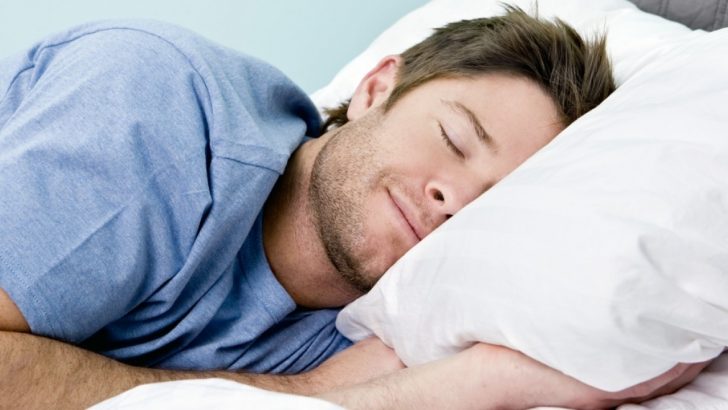Sleep is a precious part of our day that we never have enough of, writes Wendy Grace
For many of us, getting enough sleep can be a luxury or, perhaps like me, you’re a parent of a young child and a full eight hours sleep is a distant memory, or there just doesn’t seem to be enough hours in the day. For many sleep is a precious part of our day that we never have enough of. Sleep plays a crucial role in our energy levels and health, yet it can often come low down on our list of priorities.
We need to make sure we are getting quality sleep when we can, that we can fall asleep quickly and stay asleep and, if we manage to find time, grab a nap when we need to. The quality of sleep is just as important as the quantity, and if you are sleep-deprived trying to catch up is very important. The amount of sleep you need depends on your age, a two-year-old needs around 12 hours a night whilst adults need 7-9 hours.
If you find it hard to fall asleep, or indeed to stay asleep, you are not alone, with some polls indicating that up to 45% of people have an issue with poor sleep. If restless nights are the norm for you, the first thing to do is start observing your sleep patterns, taking a note of how much sleep you are getting each night and how you feel the next day. Then think about the factors that contribute to your sleep or lack of it. Are you watching TV just before going to bed, checking your work emails or your phone? What things can you change?
When it’s coming up to bed time start to minimise light and sound. Darker rooms encourage your brain to release melatonin, which can have a calming effect. Bright lights, on the other hand, trick your brain into thinking it is still daytime. This includes the light from your television, computer or mobile phone. Using any of these before bedtime will make it harder for you to fall asleep. In fact, you should avoid watching TV or using any electronic devices in your bed all together no matter what time of the day it is. Your brain needs to associate your bed with sleep. Also the blue light that these devices give off stops the production of that valuable melatonin which helps you to feel sleepy.
During the day, it is important to get as much natural light as possible. Perhaps you can have your morning coffee outside, get off the bus a stop early or go for a walk at lunch time. Try to let as much natural light as possible into your home or workspace.
We will spend around a third of our lives sleeping. So the place you sleep is important. Invest in a good comfortable mattress. Make sure your bedroom is at a comfortable temperature and that it is a place which you associate with rest not work.
Routine
Routine is something we probably associate with children, but adults need one too; when you have a bedtime routine it helps to prepare your body and brain for rest. Figure out what helps you to wind down, it could be enjoying a hot shower or a cup of camomile tea or listening to relaxing music. How you handle day-to-day stress will play a significant part in your ability to fall asleep. Of course stress is inevitable, but it’s when that stress turns to anxiety you need to address it. If you are struggling to manage stress or anxiety it is important to seek professional help, either with one-to-one counselling or you might benefit from participating in the life skills programme run by AWARE.
Meditative prayer before bedtime can really help you switch off and relax. Perhaps you can set up a prayer space, dim the lights, play some instrumental music and take even 10 minutes to sit quietly in prayer reflecting on your day.
People who exercise regularly sleep better and have more energy during the day. Regular exercise will help you fall asleep and also will increase the amount of time you spend in restorative deep sleep. The more vigorously you exercise during the day the better you will sleep, but even light exercise like a short walk will help. However, make sure not to do moderate to hard workouts close to bed time. If you’re starting exercise, remember it will take time before you experience the full sleep inducing effects so pick habits that you can stick to.
Think about what you eat and drink. Avoid heavy meals, especially rich or spicy ones, too close to bed time. Going to bed with indigestion or heartburn certainly won’t aid a restful sleep. It might be tempting to gulp down another cup of coffee to give you what you need to make it through the day, but overdoing caffeine can mask your need for sleep and prevent you from getting to sleep when you lie down. Remember tea also contains caffeine (around half the amount of a cup of coffee) as do other infusions and fizzy drinks, so cut caffeine out after 3pm.
If you have young children, when your little one is taking a 30-minute nap, you might feel you won’t fall asleep and you busy yourself with chores in the house. Take this time to rest, lie down and relax in your bed or on the couch, stay off your phone and switch off the television, this, in itself, can be very restorative. I know this advice is easier said than done, but just remember if you burn out from lack of rest you won’t be much good to your children.
Apps
Technology can also assist with lots of apps claiming they can help you sleep better:
· Sleepio uses scientific techniques with years of research behind it, analysing your lifestyle, mind and your timetable to help you to sleep better.
· Sleep Genius aims to help you train yourself to fall asleep. The creators originally were helping astronauts to fall asleep in space and are experts in neuroscience, sleep and music.
· Pzizzis designed to help you fight insomnia and take power naps during the day. The app generates new sounds each time you use it, so your mind can’t get used to the same overplayed sounds.
You may have heard of white noise being used to help calm crying infants, you might even have an app that plays a hairdryer sound on your phone.
But for an adult’s perfect sleep inducing lullaby there is pink noise (more low-frequency than white noise). A recent study, published in the journal Frontiers in Human Neuroscience, observed adults who were made listen to pink noise as they slept.
The next day they reported feeling more rested than usual. Apparently, listening to this type of pink noise can increase “slow wave activity” helping you sleep better and increase your memory retention. The good news is you can get hours of pink noise for free on YouTube.
There are some habits that are important to break. Pressing the snooze button on your alarm clock a few times in the morning kicks off a new sleep cycle, which you won’t be able to finish, leaving you feeling less rested.
If you’re a smoker and need another reason to kick the habit, similar to caffeine, remember nicotine is a stimulant. Therefore, if you smoke you are four times more likely to report poor sleep compared to non-smokers. Smoking also changes your internal body clock, and it is estimated that every cigarette smoked leads to a loss of 1.2 minutes sleep each night.
Something we certainly don’t get enough of in Ireland is sun! One of the best things you can do to get more sleep is get more sunlight; exposure to natural light, especially first thing in the morning, helps to wake you up and makes you more sleepy at night.
So getting fit, healthy and relaxing more – if that isn’t enough of an incentive in order to sleep better, it might help to know that according to a new UK study of 30,000 people across four years, getting better sleep can be as beneficial as winning €230,000 in the lottery!


 Wendy Grace
Wendy Grace